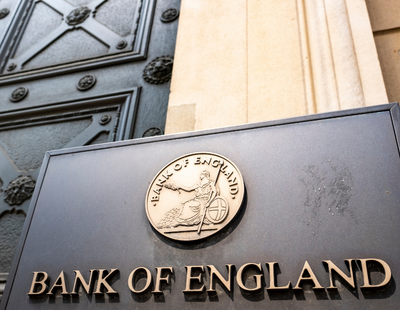After yet another tumultuous week in the property market, many of those working sector will be breathing a huge sigh of relief to have simply got through.
Here, in his latest weekly column Jonathan Rolande, from the National Association Of Property Buyers, warns how the ongoing crisis in the sector risks widening the gap between the generations.
“What a week! It's fair to say, it started badly and kind of went downhill from there.
It feels like we are ending the week with a sense of déjà vu as lenders once again begin to re-price their mortgage products.
HSBC and TSB raised their rates on Wednesday less than a week after The Bank of England added half a percent to the base rate.
An average two-year fixed is now 6.37%, equivalent to the amount inflicted upon us in the days after Liz Truss’s mini-Budget. Just 18 short months ago, the rate was a third of its current level. That’s an extra £6,000 that must be found - after tax - by borrowers with a £250,000 mortgage.
The reason for the hike is well-known and most of us see the logic. Things were just too good and the market couldn’t continue its rise, rise and rise indefinitely.
But I’m now really beginning to question what’s being done to beat the scourge that is inflation.
Perhaps a little late, the Bank of England is using the only tool available to them, the sledgehammer of interest rates. The half percent rise last week was the 13th in a row, hoping to finally crack the nut of inflation.
And yes it will work. In the end. Of course it will. Taking money out of pockets for interest during a cost of living crisis will reduce spending. “Hold your nerve” says Rishi, as if being gutsy Brits we can simply stare down the banks when they ask for their extra interest each month.
The interest rate rises are affecting not homeowners, just homeowners with a mortgage. Not landlords, just landlords with a mortgage. Their tenants are hit with increased rent to pay the difference. What do these three groups have in common? For the most part they are younger, working people very often with a family to support.
Older homeowners and landlords, mortgage-free, feel only the benefit, as any savings they have, increase faster than they have in over a decade.
The gap between the generations will now widen faster than ever. How much longer can the below 50’s carry on – they are already shouldering the highest tax burden for 70 years. It seems that high rates are here to stay, at least for a year or two. Many families will face financial ruin.
But spending must decrease to curb inflation.
Should we not be looking at other ways to do that which don’t unfairly hit many of those who can least afford it?
A measure such as increasing VAT would help to stamp out unnecessary spending, raise money for the government and reduce inflation. And because so many essentials – children’s clothes, books, food – are exempt, the tax is almost voluntary. Buy more, pay more. Increasing it temporarily would certainly relieve pressure to increase rates again.
The Bank of England is independent of the Government and has one job. Get inflation down by doing whatever it takes.
I hope that the Government steps in soon to look at the problem more holistically.


























Join the conversation
Jump to latest comment and add your reply
Rishi has joint personal fortune of £540M, Governor of BoE on 600k a year plus pension, always easy to say 'tough it out' when you are in the concrete bunker.
Please login to comment